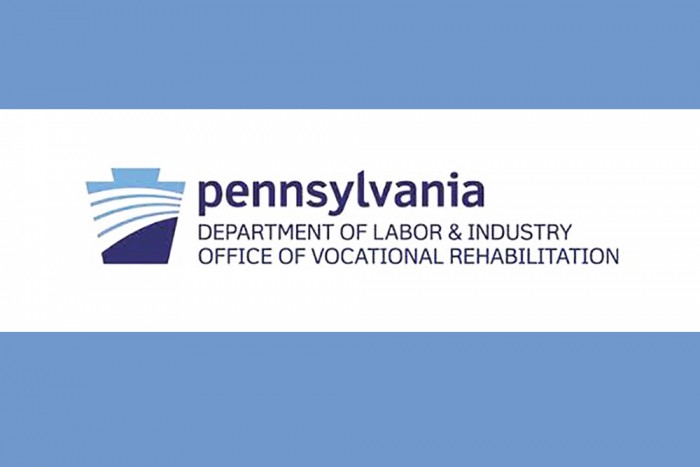Jim Sharp
RCPA Urges Senators to Preserve OVR Employment Funding
The Rehabilitation and Community Providers Association (RCPA), in conjunction with our provider members and partner stakeholders, have written to PA Senator Casey and PA Senator Fetterman to express our full support for ensuring the mandated inflationary increases are preserved for the Pennsylvania Office of Vocational Rehabilitation (OVR) so that critical OVR employment programs will continue for working and job-seeking Pennsylvanians with disabilities. Vocational rehabilitation funding is essential in Pennsylvania to maintain services that support the advancement of employment. We are fortunate that our state legislature has consistently funded Pennsylvania OVR in a manner that has allowed OVR to collect the full federal match and even draw down more when there is a surplus.
If the mandated inflationary increases are rescinded, Pennsylvania’s OVR funding will be cut by millions of dollars, adversely impacting working and job-seeking Pennsylvanians with disabilities. Specifically, approximately $13M would be eliminated from a limited $200M budget, or 6.5%. The resources provided to PA OVR are too valuable and already limited. This potential action forces Pennsylvania to prioritize allocations at the expense of critical employment and related services. Maintaining funding levels is crucial for advancing employment for individuals with disabilities.
Should you have any questions, please feel free to contact Intellectual/Developmental Disabilities Division Director Carol Ferenz or IDD Policy Analyst Cathy Barrick.
JCJC Announces Conference Resource Day on Juvenile Justice
Message from the Juvenile Court Judges’ Commission (JCJC):
The Juvenile Court Judges’ Commission (JCJC) is pleased to announce the 2024 James E. Anderson Pennsylvania Conference on Juvenile Justice will be held at the Hilton Harrisburg on Wednesday, November 6 – Friday, November 8, 2024. Resource Day will be held on Friday, November 8, from 8:00 am – 11:00 am.
JCJC is inviting you to join them as an exhibitor at Resource Day, where your organization can interact with a wide variety of conference attendees, including, but not limited to, juvenile court judges, juvenile court hearing officers, juvenile probation staff, attorneys, providers, and other system stakeholders.
Students and faculty from colleges and universities across the Commonwealth will be invited to attend on Resource Day to learn about the important work being done in Pennsylvania’s juvenile justice system. Please consider utilizing this time to network with possible future system professionals.
JCJ is also excited to announce a new addition to this year’s conference, as providers will be able to showcase their programs throughout the day on Thursday, November 7, though the use of banners, displays, or other promotional techniques. These unstaffed displays will be freestanding (nothing attached to walls) throughout the common areas of the hotel. Examples could include freestanding flags, banners, or signage/posters of programs. Specific details will be provided upon registration for the event.
If you are interested in being an exhibitor during Resource Day, please contact Michael Yoder, Juvenile Court Judges’ Commission, via email or at (717) 874-1149. Please note that there are no fees to participate in Resource Day.
OMHSAS PRTF Regulations Webinar Information
The OMHSAS Bureau of Children’s Behavioral Health Services presented the Psychiatric Residential Treatment Facility (PRTF) regulation informational webinar for systems stakeholders.
This webinar highlighted significant sections of the proposed PRTF regulations prior to the public comment period. The proposed PRTF regulation will codify the minimum licensing standards, Medical Assistance (MA) participation requirements, and payment conditions for PRTFs that provide medically necessary behavioral health treatment to children, youth, or young adults under 21 years of age with a behavioral health diagnosis.
RCPA Children’s Residential Services Committee met after the webinar to review these highlights and to begin preparing recommendations. Our committee will continue to meet over the next 60 days in anticipation of the regulations release to develop our public comments, recommendations, and testimony.
If you have any questions or would like to join our committee, please contact RCPA COO and Mental Health Policy Director Jim Sharp. View the webinar recording here.
PCCD Announces $120M for School Safety and Mental Health Supports for Students
Pennsylvania schools and other eligible entities are now able to apply for grant funding for physical security upgrades and to strengthen behavioral health supports through two new school safety grant solicitations from the Pennsylvania Commission on Crime and Delinquency’s (PCCD) School Safety and Security Committee.
The School Safety and Security Committee approved a funding framework to utilize nearly $120 million in state school safety funding, secured by the Shapiro-Davis Administration in the 2024/25 budget, which includes:
- $100 million for noncompetitive FY 24/25 School Safety & Mental Health Grants for eligible school entities to meet both physical security and behavioral health needs. Funding is distributed via formula grants to all school districts, charter schools, area career and technical centers, and intermediate units in the Commonwealth.
- $19.7 million for competitive FY 24/25 Targeted School Safety Grants for Nonpublic Schools to support programs addressing school violence and improving school safety and security. Municipalities, law enforcement agencies, and approved security vendors are also eligible to apply to support school security personnel services in all Pennsylvania schools.
Eligible applicants can find information about each of these solicitations, including eligibility criteria and application instructions, on PCCD’s School Safety and Security web page. PCCD staff will also host informational webinars and provide other resources to assist school entities and eligible applicants as they navigate these funding opportunities.
The seven-week application period for the competitive FY 24/25 Targeted School Safety Grants for Nonpublic Schools solicitation will close on Thursday, September 26, 2024. Noncompetitive, formula-based awards will be awarded on a rolling basis as applications are accepted by the agency and competitive awards are expected to be announced in November 2024.
Questions regarding the School Safety and Security Grant Program can be sent to PCCD staff or by visiting PCCD’s School Safety and Security web page.
As in the past three funding years, RCPA strongly recommends providers engage with their school districts, to assist in the planning process and provide recommendations to enhance their current school-based programming or develop service models to meet the needs of the students and district.
If you have any questions, please contact RCPA COO and Mental Health Policy Director Jim Sharp.
Final Form Regulations for PRS Providers Open for Public Comment

As part of the Independent Regulatory Reform Commission (IRRC) process for the promulgation of new regulations, the Final Form Regulations for the Psychiatric Rehabilitation Services (PRS) have been posted for review and public comment on the IRRC website. This public comment period runs for 30 days. The comments may be submitted by individuals, organizations, associations, etc. on the impacts of the regulations on the systems and individuals they serve.
The purpose of this final-form rulemaking is to amend Chapter 5230 to allow psychiatric rehabilitation services (PRS) to be provided to individuals who are diagnosed with posttraumatic stress disorder, bipolar disorder, major depressive disorder, or anxiety disorders without going through the exception process and to allow individuals who are 14 years of age or older but under 18 years of age who meet the admission requirements to access PRS. In addition, the final-form rulemaking clarifies the documentation that will be reviewed through the exception process to determine if an individual is eligible for PRS as well as revises outdated language.
The Department convened a work group that included stakeholders to review and provide input on the proposed rulemaking. The work group held face-to-face meetings on November 4, 2015; December 8, 2015; and January 28, 2016, to review the current regulation and provide recommendations for the proposed changes, which RCPA and its members took part in.
At this time, we are seeking any further public comment as it relates to these regulations. RCPA intends to submit comments on behalf of our members, though individuals and organizations may submit comments pertaining to the regulations directly to the IRRC website. Please submit your comments to RCPA COO and Mental Health Policy Director Jim Sharp.
The IRRC hearing on the Final Form Regulation Hearing will be held on September 19, 2024, at 10:00 am. RCPA intends to participate in the hearing to speak to our recommendations. If any member would like to attend and or testify, please contact Jim Sharp.
ATTENTION: DHS Updates PROMISe System URL
In accordance with DHS rebranding and the Governor’s Office Customer Service Transformation Initiative, the Office of Medical Assistance Programs will be implementing changes to the old URLs to reach PROMISe hosted applications and websites. The old URLs, using a domain naming convention of dpw.state.pa.us, will be changing to dhs.pa.gov in phased implementations beginning August 7, 2024, and wrapping up in October 2024. Please review the PDF listed below, containing the impacted production environment URLs.
See document for specific PROMISE activity URL updates.
Who is Impacted?
- CWOPA users and registered business partners with active assigned PROMISe role permissions for each URL
- External persons accessing the Physician Provider Directory Search
- Providers accessing the Electronic Enrollment Application or logging into the MA and LiHeap Provider Internet Portals
When is this happening?
- The first URL, Project Workbook access, is scheduled to change on August 7, 2024
- The remaining URLs will be implemented in phases
- All phases to be completed by October 1, 2024
How will these changes be communicated?
- CWOPA users and business partners with active assigned PROMISe role permission to access URLs today will receive targeted email communication shortly before each URL change is implemented
- Broadcast messages will run on the MA Provider and LiHeap Internet Portals
- Providers will receive the same messaging via the ListServ
- For a limited time after implementation, if a user tries to access an old dpw.state.pa.us URL, a redirect message will pop-up for 5 seconds instructing users to save/bookmark the new URL, then continue to the new dhs.pa.gov URL
- The DHS Communications Office will be making pre-identified updates from old URLS to the new URLs throughout the various DHS website pages
What can I do to aid this transition?
- The Old PROMISe URLS have been in place for a long time. We are asking for your assistance, post implementation, in identifying any remaining reference to the old URL. These references could be found on DHS SharePoint, HealthChoices Extranet, and DHS web pages or downloadable documents
- If you discover remaining usage of the old URLs post implementation, please send a message to this email for correction. Be sure to document the exact site location of the reference and include a screen shot to aid in correction efforts.
If you have further questions, please contact the above OMPA Ra account or your respective RCPA Policy Director.
OMHSAS Shares VBP Provider Technical Assistance PowerPoint
On July 19, 2024, the Office of Mental Health and Substance Abuse Services (OMHSAS) presented a Value-Based Purchasing (VBP) Provider Technical Assistance Webinar. The webinar, developed and presented by OMHSAS and their partner Mercer, provided an excellent overview of the VBP landscape and valuable guidance for providers to consider future efforts to incorporate VBPs into their service matrix.
OMHSAS supports providers interested in pursuing VBP programming to contact and collaborate with their respective BH-MCOs on VBP options. The Value-Based Purchasing (VBP) Provider Technical Assistance PowerPoint provides an outline of the information covered in the webinar. Should you have any questions or comments, please contact the OMHSAS VBP Resource Account via email.
If you have any additional questions, please contact RCPA Policy Directors Jason Snyder or Jim Sharp.
DHS Releases RFI for 1115 Waiver Program Administrator

The Department of Human Services has released a new Request for Information (RFI) to assist in determining possible implementation needs for the Commonwealth’s proposed 1115 Demonstration Waiver titled, Bridges to Success: Keystones of Health for Pennsylvania. This RFI will help inform a potential scope of work for private, public, and nonprofit organizations that could serve in the future as a program administrator for the program. If approved and implemented, Keystones of Health would bring new resources to Pennsylvaniaʼs Medicaid program to address health-related social needs (HRSN) that have a direct impact on health care spending and health outcomes. Responses to the RFI are due August 19, 2024 by 12:00 pm.
The proposed Keystones of Health program seeks to expand tools available to address critical health care needs of Pennsylvanians in four main areas: reentry supports, housing resources, food and nutrition services, and continuous health coverage for children under the age of six. This RFI seeks information to assist DHS in implementing the proposed housing, food, and nutrition services for beneficiaries. Through this RFI, the department is seeking knowledge about potential program administrator responsibilities and capabilities for administering these HRSN services. The RFI will also inform aspects of the DHS implementation plan that is currently in development, while the Commonwealth collaborates with the Centers for Medicare & Medicaid Services to secure approval. The department encourages respondents and other interested parties to provide feedback by responding to the RFI.
Section 1115 of the Social Security Act gives the federal government the ability to waive certain federal rules that govern Medicaid to allow states to design and evaluate new state pilot projects that promote the general goals of the Medicaid program, helping people live healthier lives. Section 1115 waivers are a major pathway for state innovation in the Medicaid program that many states have leveraged. If approved, and the necessary state funds are appropriated, it would allow DHS to introduce innovative programs and services that address health-related social needs that can improve health and quality of life for Pennsylvanians who access health care through Medicaid.
Submit feedback to DHSʼ Request for Information. The full application, including information on feedback received through public comment, is available on the Keystones of Health web page.
RCPA is reviewing the RFI internally and will meet with interested members on the RFI in the coming week. If you have any questions, please contact RCPA COO and Mental Health Policy Director Jim Sharp.
Call for Proposals Issued for 32nd Annual PA Forensic Conference
Drexel University Division of Behavioral Healthcare Education has announced a Call for Proposals for the Virtual 32nd Annual Forensic Rights and Treatment Conference on December 4 – 5, 2024. Complete the Proposal Application, which includes an Award Nomination Referral Form, to submit your proposal. Applications must be received no later than August 31, 2024. If you have any questions regarding this email, please feel free to contact Anna Auch.
















